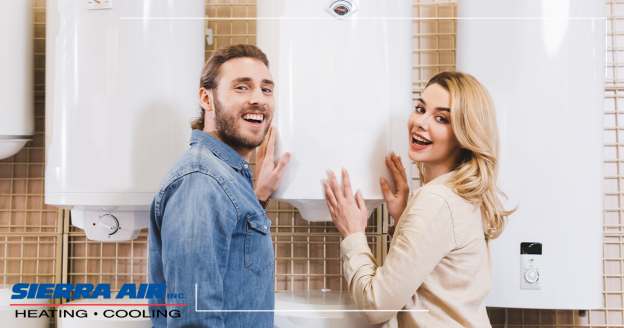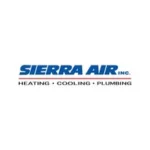Water heaters play an important role in our everyday lives. They provide warm water for showers, baths, and cooking. As technology advances, there are more and more options for water heaters to suit your preferences.
From traditional tank-based systems to tankless models, each type of water heater offers distinct features and benefits. Learn more about the different types of water heaters and their benefits from the pros at Sierra Air.
Traditional Tank Water Heaters
Traditional tank water heaters have been a staple in households for decades. They consist of a large cylindrical tank, typically made of steel, that stores and heats a high volume of water. The heating process is continuous, ensuring a ready supply of hot water whenever you need it.
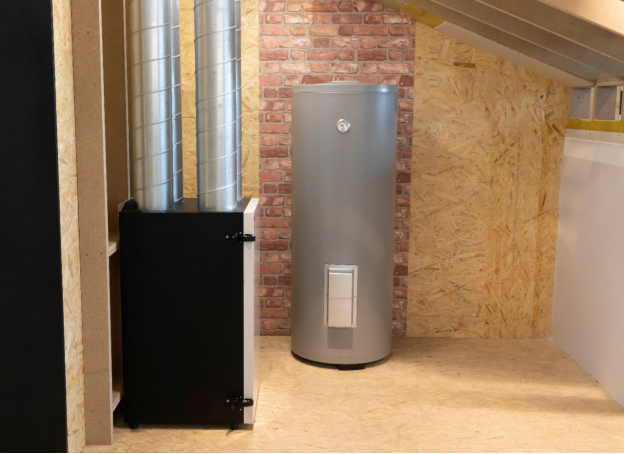
The benefits of a tank water heater include:
- Cost:One of the primary advantages of traditional tank water heaters is their affordability. These systems usually have a lower upfront cost compared to newer models, making them attractive if you’re on a budget.
- Simplicity:Tank water heaters are relatively simple in their design and operation, making them easy to install and maintain. Routine maintenance tasks, such as flushing the tank to remove sediment, can be done without extensive knowledge or expertise.
- Availability:Traditional tank water heaters are widely available, and replacement parts are easy to find. This simplifies repairs and ensures that you can easily address any issues that may arise.
The drawbacks of traditional water heaters include:
- Energy efficiency:One significant drawback of a tank water heater is the energy efficiency. These systems continuously heat water in the tank, even when it’s not in use, leading to standby heat loss. This inefficiency can contribute to higher energy bills over time.
- Limited hot water supply:The storage capacity of tank water heaters is finite, meaning there is a limit to the amount of hot water available at any one time. Larger households may experience times without enough hot water, such as back-to-back showers.
Tankless (On-Demand) Water Heaters
Tankless water heaters, also known as on-demand water heaters, differ significantly from their tank-based counterparts. Instead of storing and continuously heating a large volume of water, these units heat water on demand as it flows through the device.
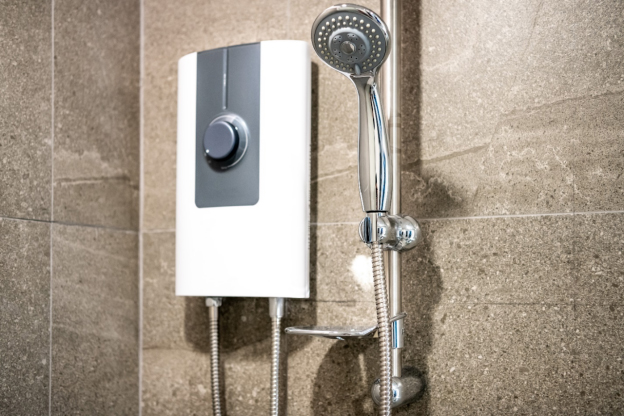
The benefits of a tankless water heater include:
- Energy efficiency:Tankless water heaters are renowned for their energy efficiency. Since they only heat water when needed, there is no standby heat loss, resulting in lower energy consumption and reduced utility bills. This makes them an environmentally friendly option as well.
- Unlimited hot water supply:One of the most significant advantages of tankless water heaters is their ability to provide an almost unlimited supply of hot water. As long as the unit is appropriately sized for the household’s needs, you can enjoy hot water continuously without the fear of running out.
- Space-saving design:Tankless water heaters are compact and can be installed in various locations, including on walls or in small utility closets. This space-saving design is particularly beneficial if you have limited space.
The drawbacks of tankless hot water heaters include:
- Higher initial costs:While tankless water heaters offer long-term energy savings, they typically have a higher initial cost compared to traditional tank models. The installation may also require modifications to the existing plumbing and electrical systems, contributing to the upfront expenses.
- Flow rate limitations:The capacity of tankless water heaters is determined by their flow rate, which may pose limitations if you have a larger household with simultaneous hot water demands from multiple sources, such as showers, laundry, and the kitchen. Proper sizing is crucial to ensuring adequate performance.
Heat Pump Water Heaters
The benefits of a heat pump water heater include:
- Energy efficiency:Heat pump water heaters are highly energy-efficient, making them an environmentally friendly option. They can be two to three times more energy-efficient than conventional electric resistance water heaters, leading to significant cost savings over time.
- Dual functionality:Some heat pump water heaters can function as both water heaters and air conditioners. This dual functionality enhances their versatility and can be especially advantageous in regions with moderate climates.
- Reduced greenhouse gas emissions:By relying on ambient heat sources, heat pump water heaters contribute to a reduction in greenhouse gas emissions compared to traditional heating methods. If you’re concerned with sustainability and eco-friendly technologies, this is a big benefit.
The drawbacks of a heat pump water heater include:
- Climate dependence:The efficiency of heat pump water heaters can be influenced by external temperatures. In colder climates, where the air or ground temperature is significantly lower, the system may be less efficient, potentially impacting its overall performance.
- Upfront cost:Similar to tankless water heaters, heat pump water heaters often have a higher upfront cost. However, the long-term energy savings can offset this initial investment for those willing to make a larger initial financial commitment.
Solar Water Heaters
Solar water heaters harness the power of the sun to heat water. They consist of solar collectors, which absorb sunlight and convert it into heat and a system to transfer this heat to the water in the storage tank.
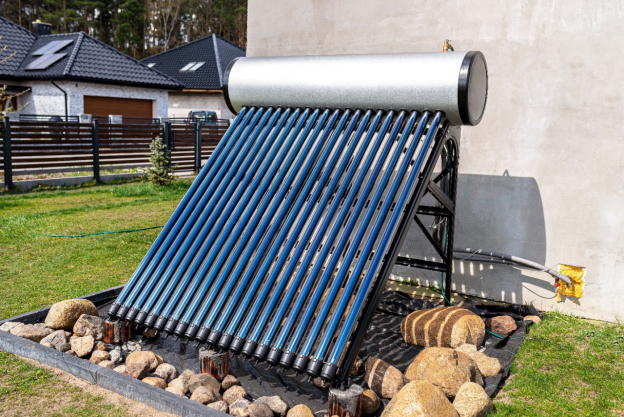
The advantages of a solar water heater include:
- Renewable energy source:Solar water heaters are powered by renewable energy from the sun, making them an environmentally friendly choice. By reducing reliance on conventional energy sources, you can decrease your carbon footprint and contribute to sustainable practices.
- Long-term cost savings:While solar water heaters may have a higher initial cost, they offer long-term savings on energy bills. The abundant and free energy provided by the sun can significantly reduce or eliminate the need for traditional energy sources to heat water.
- Government incentives:In certain areas, government incentives and tax credits may be available to encourage adoption of solar water heaters. These financial incentives can offset your initial investment.
The drawbacks of solar water heaters include:
- Weather considerations:The efficiency of solar water heaters is influenced by weather conditions. Cloudy days or periods of limited sunlight can reduce their effectiveness, potentially leading to insufficient hot water supply during such times.
- Installation challenges:The installation of solar water heaters may require additional considerations, such as the orientation and tilt of the solar collectors, to maximize sunlight absorption. Proper installation is crucial for optimal performance.
Condensing Water Heaters
Condensing water heaters are a type of tankless water heater that extracts additional heat from the combustion gases, improving efficiency. They often use natural gas or propane as a fuel source.
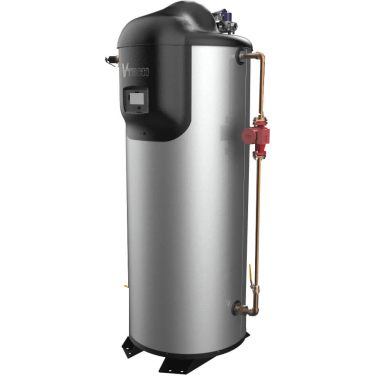
The benefits of condensing water heaters include:
- High efficiency:Condensing water heaters achieve high levels of efficiency by recovering heat from the combustion process that would otherwise be wasted. This results in lower operating costs and reduced energy consumption.
- Reduced greenhouse gas emissions:The increased efficiency of condensing water heaters contributes to lower greenhouse gas emissions compared to traditional tankless or tank water heaters. If you’re concerned about greenhouse gas emissions, this is a good choice.
- Continuous hot water supply:Similar to standard tankless water heaters, condensing models offer an on-demand hot water supply, ensuring that you have access to hot water whenever you need it.
The drawbacks of condensing water heaters include:
- Initial cost:Condensing water heaters can have higher upfront costs compared to traditional water heaters. However, the long-term energy savings can pay off over time.
- Installation complexity:Installation of condensing water heaters may be more complex than traditional models, and it often requires professional expertise. Proper venting and gas line considerations are essential for safe and effective operation.
How to Choose the Right Water Heater
- Hot water demand:Understanding your household’s water demand is important for choosing the right water heater type and size. A larger household may benefit from tankless or heat pump water heaters that supply more hot water.
- Space:If you have limited space, it’s best to look at hot water heater models that are more compact and adaptable compared to larger traditional tank water heaters.
- Energy efficiency:If you want to minimize your environmental footprint and save money on energy costs, the energy efficiency of your model is important to consider.
- Budget constraints:Take both the upfront costs and long-term usage costs into consideration when choosing a water heater. Often, more expensive hot water heaters have better efficiency and lower costs over their lifespan.
- Professional consultation:With the diversity of water heaters and the technical aspects of choosing them, you may want to have a professional consultation with an HVAC professional to ensure you’re making the right choice.
Get Your New Hot Water Heater
Water heaters come in a variety of types and models, offering you a dizzying array of options to meet your household’s needs. if you’re considering a new hot water heater,contact the pros at Sierra Air to schedule your appointment!

